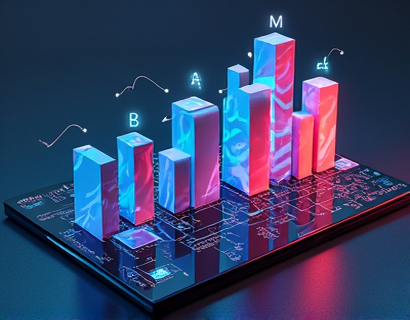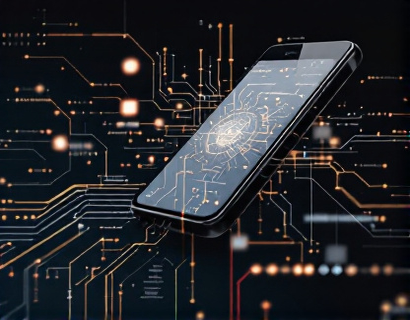Smart Contracts and Management Tools: Revolutionizing Governance for Enhanced Democracy and Participation
In recent years, the intersection of technology and governance has given rise to innovative solutions that promise to transform the way democratic processes are conducted. Among these, smart contracts and advanced management tools stand out as pivotal elements in streamlining decision-making, enhancing transparency, and boosting community engagement. This article delves into the revolutionary potential of these technologies, exploring how they are reshaping governance to foster universal democracy and participatory governance, catering to individuals and organizations committed to pioneering new democratic solutions.
The concept of smart contracts, first introduced by computer scientist Nick Szabo in the early 1990s, has evolved significantly with the advent of blockchain technology. Smart contracts are self-executing contracts with the terms of the agreement directly written into code. They automatically enforce and execute the terms of a contract when predefined conditions are met, eliminating the need for intermediaries and reducing the risk of fraud or human error. In the context of governance, smart contracts can automate various administrative and legislative processes, making them more efficient and transparent.
One of the most significant impacts of smart contracts in governance is the streamlining of decision-making processes. Traditional governance often involves cumbersome and time-consuming procedures for proposing, debating, and passing laws or policies. Smart contracts can automate these steps by creating a transparent and immutable record of all proposals and votes. For instance, a smart contract can be programmed to collect and tally votes from eligible participants, ensuring that the outcome is accurate and immediately available. This not only speeds up the decision-making process but also reduces the potential for manipulation or corruption.
Enhancing transparency is another critical area where smart contracts excel. In conventional governance systems, the lack of transparency can lead to mistrust and disengagement among citizens. Smart contracts, by their nature, are transparent as all transactions and decisions are recorded on a blockchain, which is a decentralized and tamper-proof ledger. This means that every step of the governance process, from the initiation of a proposal to the final vote, is visible to all stakeholders. Such transparency fosters trust and accountability, as citizens can verify the integrity of the process and the outcomes.
Beyond streamlining and transparent decision-making, smart contracts and management tools play a crucial role in boosting community engagement. Traditional democratic processes often suffer from low participation rates, particularly among younger and marginalized communities. By leveraging smart contracts and user-friendly management tools, governance can become more accessible and engaging. For example, online platforms can be designed to allow citizens to propose and vote on local issues with just a few clicks, making participation as easy as casting a digital vote. This not only increases the number of participants but also ensures that a broader range of voices is heard in the decision-making process.
Moreover, these technologies can facilitate more inclusive and representative governance. In many regions, certain groups are underrepresented in traditional political systems due to various barriers such as geographical location, socioeconomic status, or lack of time. Smart contracts and management tools can bridge these gaps by providing equal access to the governance process. For instance, blockchain-based platforms can be designed to accommodate different languages and accessibility features, ensuring that all community members can participate regardless of their background.
The integration of smart contracts with advanced management tools also enhances the efficiency of governance operations. Management tools can help organizations and governments manage resources, track progress, and monitor the implementation of policies. When combined with smart contracts, these tools can automate routine tasks, such as budget allocations and report generation, freeing up human resources for more strategic and creative work. This synergy between smart contracts and management tools creates a more agile and responsive governance system.
Another significant advantage of using smart contracts in governance is the reduction of costs associated with traditional administrative processes. Intermediaries such as notaries, lawyers, and government officials often add layers of complexity and expense to governance operations. Smart contracts eliminate the need for these intermediaries by ensuring that all agreements are executed precisely as programmed. This not only reduces administrative costs but also accelerates the pace of governance, allowing for quicker responses to emerging issues and opportunities.
In addition to these operational benefits, smart contracts and management tools contribute to the development of more resilient and adaptive governance systems. Blockchain technology's inherent security and decentralization make it an ideal platform for storing and managing critical governance data. This resilience is particularly important in the face of cyber threats and data breaches, which can compromise the integrity of traditional governance systems. By leveraging blockchain, governments and organizations can ensure that their data is secure and their governance processes are robust.
The potential for smart contracts and management tools to enhance democratic participation is further exemplified by their application in various real-world scenarios. For instance, some cities have implemented blockchain-based platforms for public budgeting, allowing citizens to directly allocate a portion of the municipal budget. This direct democracy approach has led to more tailored and community-driven projects, as citizens have a direct say in how funds are spent. Similarly, in the realm of voting, blockchain-based voting systems are being explored to increase voter turnout and ensure the integrity of elections.
However, the adoption of smart contracts and management tools in governance is not without challenges. One of the primary concerns is the technical complexity and the need for a skilled workforce to develop and maintain these systems. Governments and organizations must invest in training and education to build the necessary expertise. Additionally, there is a need for regulatory frameworks that address the unique aspects of blockchain and smart contracts, ensuring that they are used responsibly and ethically.
Privacy is another critical issue that must be addressed. While transparency is a key feature of blockchain, it can also raise concerns about the exposure of sensitive information. Solutions such as zero-knowledge proofs and privacy-preserving blockchain protocols can help mitigate these concerns, allowing for transparency without compromising individual privacy. It is essential to strike a balance between openness and privacy to build public trust in these technologies.
Looking to the future, the integration of smart contracts and management tools with other emerging technologies, such as artificial intelligence and the Internet of Things (IoT), holds even greater promise. AI can enhance the analytical capabilities of governance systems, providing insights and recommendations based on data-driven decision-making. IoT devices can feed real-time data into smart contracts, enabling more dynamic and responsive governance. The convergence of these technologies has the potential to create highly intelligent and adaptive governance systems that can address complex societal challenges more effectively.
In conclusion, smart contracts and management tools are revolutionizing governance by streamlining decision-making, enhancing transparency, and boosting community engagement. These technologies offer a pathway to more efficient, inclusive, and resilient democratic processes, making governance more accessible and participatory for all stakeholders. As these innovations continue to evolve, they will play an increasingly vital role in shaping the future of democracy and participatory governance.











































